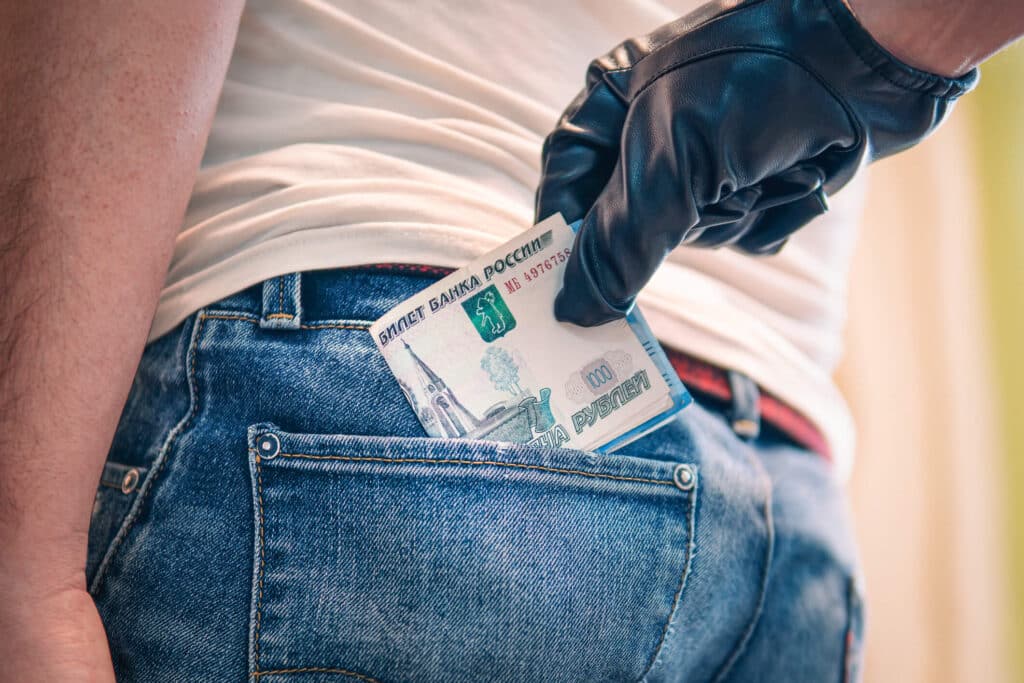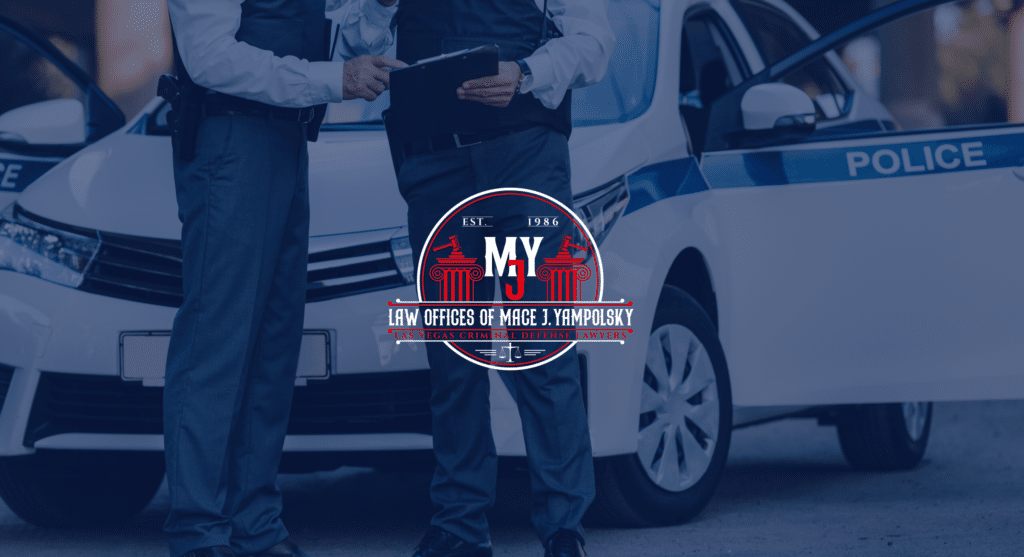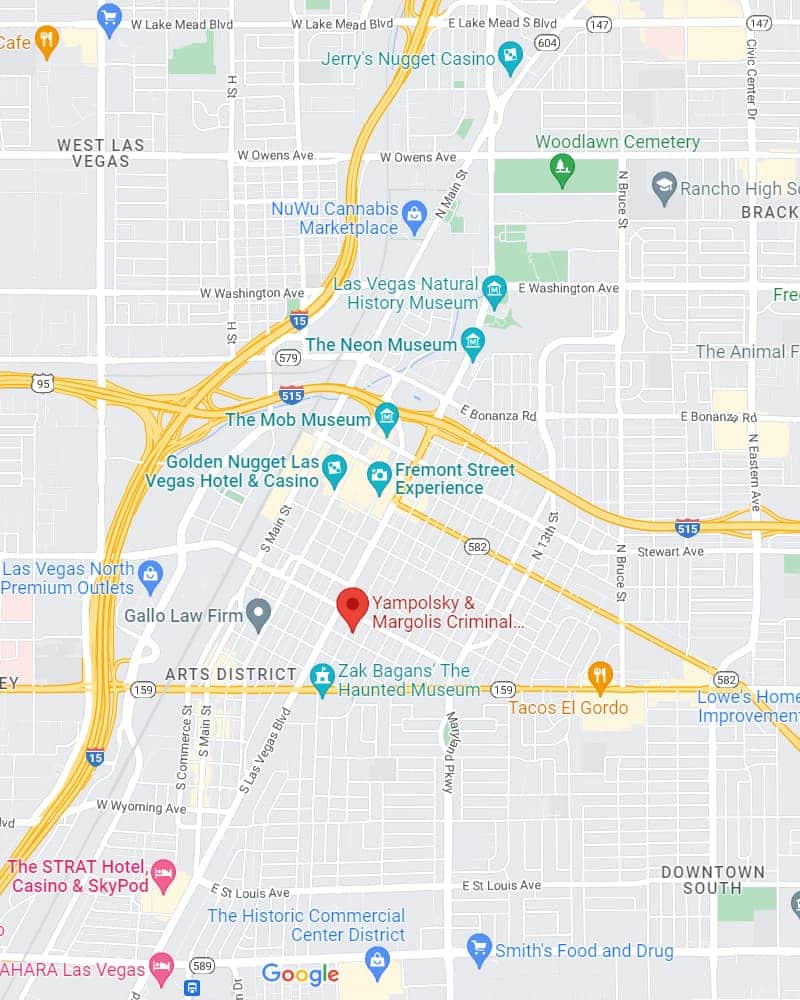Larceny, regardless of its size, can have serious legal consequences. If you’re in Nevada and wondering about the repercussions of petit larceny, commonly referred to as petty theft, you’re not alone. Understanding the legal framework and potential penalties is crucial for staying on the right side of the law. Let’s delve into Nevada’s laws surrounding petit larceny and whether it can land you behind bars.
What is Petit Larceny in Nevada?
Petit larceny, or petty theft, is when someone takes something worth less than $250 to $650 without permission. It’s different from grand larceny, which involves stealing more valuable things. If someone is guilty of petit larceny in Nevada, they might face lighter punishment, like fines or a short time in jail. However, for grand theft, the consequences can be more severe.
People must know this difference in Nevada law to understand what might happen if accused of stealing. They might need a criminal defense lawyer with experience in theft cases to help them in court. For example, if someone is accused of taking something from a store in Las Vegas, they might need a lawyer to help them prove they’re innocent.
The lawyer can look at evidence and talk to the judge and jury to make their case. Getting the correct information and help if you’re facing larceny charges is essential so you know your rights and can defend yourself properly.

Legal Consequences
In Nevada, petit larceny is typically classified as a misdemeanor offense, considered a less severe type of crime than felonies. However, despite its misdemeanor status, the consequences can still be significant. If arrested and convicted, offenders may face fines, probation, community service, restitution to the victim, and sometimes imprisonment.
Understanding the intent to steal is critical in theft crimes like petit larceny. Depending on the case’s specifics, the larceny charge may be classified into different classes with varying penalties. The process involves prosecutors presenting case details, and depending on the evidence and circumstances, a judge may determine the appropriate penalty. In some cases, theft charges may be dismissed if there’s insufficient evidence or other mitigating factors. However, in most cases of petit larceny in Nevada, an arrest will typically be made, leading to potential legal consequences.
Therefore, it’s crucial for individuals facing petit larceny charges to take the situation seriously and seek legal advice to navigate the legal process and potential outcomes effectively.
Jail Time for Petit Larceny
Petit larceny, often considered a misdemeanor, doesn’t always result in jail time, but it’s crucial to understand that it’s a possibility, depending on several factors. The duration of any potential jail sentence hinges on various elements, including the monetary value of the stolen goods, the individual’s prior criminal record, and whether any aggravating circumstances surround the offense.
The typical jail term for a first-time petit larceny offense in Nevada is a few days to six months. However, if aggravating factors come into play, such as previous convictions or theft involving specific types of property, the court might opt for a more severe punishment. This could mean a lengthier jail sentence than the standard range. Understanding these nuances underscores the importance of seeking legal guidance and mounting a robust defense strategy to mitigate potential consequences and secure the best possible outcome.
Legal Defenses
When facing charges of petit larceny in Nevada, it’s crucial to understand your legal options, especially since it’s often considered a misdemeanor offense. Legal defenses such as mistaken identity, lack of intent to steal, consent from the owner, and factual innocence can be pivotal in your case.
Mistaken identity asserts that you were wrongly accused, while lack of intent argues that you didn’t mean to steal. Consent from the owner suggests you had permission to take the property, and asserting factual innocence means you didn’t commit the crime. An experienced criminal defense attorney can guide you through the criminal procedure, examining the details of your case and determining the best defense strategy.
They’ll work tirelessly to advocate for your rights and secure a dismissal or a favorable outcome, sparing you from fines, prison time, or anything else that might result from a larceny conviction.

Prevention and Consequences
Avoiding participation in petit larceny isn’t just about staying out of legal trouble but also safeguarding your integrity and reputation. The ramifications of a larceny conviction reach far beyond the immediate penalties imposed by the law. Such consequences can cast a shadow over various aspects of your life, affecting your ability to secure employment, find suitable housing, and maintain healthy personal relationships.
Employers, landlords, and acquaintances often scrutinize criminal records, and a larceny conviction can raise doubts about your trustworthiness and character. By refraining from engaging in petit larceny, individuals not only uphold the law but also protect their future opportunities and the trust of those around them.
Conclusion
Petit larceny in Nevada can lead to jail time and other significant legal consequences. Understanding the laws surrounding theft or larceny offenses and seeking legal guidance if facing charges are crucial steps to protect your rights and mitigate potential penalties. Remember, it’s always best to avoid engaging in criminal behavior and seek constructive ways to address any financial or personal challenges you may be facing.
Consult with a Professional Theft Attorney today!
The Law Offices of Mace J. Yampolsky stand ready to provide comprehensive legal assistance to individuals grappling with questions surrounding “Can You Go to Jail For Petit Larceny in Nevada?” Our seasoned team of professionals, including adept theft defense attorneys in Las Vegas, Nevada, is unwavering in their commitment to offering informed counsel on matters related to petty theft.
Our legal proficiency extends across a diverse spectrum of areas, encompassing DUI accidents, white-collar crimes, domestic violence, federal crimes, juvenile crimes, drug-related charges, sex crimes, theft, fraud, violent crimes, record sealing, racketeering, and drug conspiracy. Recognizing the intricacies of the legal system, our approach is characterized by a personalized defense strategy tailored to the unique specifics of each client’s situation. Whether you face petit larceny allegations or require guidance in any other legal matter, our criminal defense lawyers are dedicated to assisting.
Contact us today to schedule an appointment and consultation. This will allow us to delve into the intricacies of your case, discuss potential defense strategies, and outline the best course of action to safeguard your rights and secure a favorable outcome!

FAQs
Here are some frequently asked questions about Petit Larceny in Nevada:
Q. What is the maximum jail sentence for petit larceny in Nevada?
The maximum jail sentence for petit larceny in Nevada can vary depending on the value of the stolen items and any previous criminal history. Generally, for a first-time offense, the maximum jail time is typically around six months. However, the sentence could be longer if aggravating factors are present, such as prior convictions or theft of high-value items. It’s essential to remember that each case is different, and the actual jail sentence may vary based on the crime’s specific circumstances and the judge’s discretion.
Q. Do prior convictions affect the penalty for petit larceny in Nevada?
Yes, prior convictions can affect the penalty for petit larceny in Nevada. If someone has been convicted of petit larceny before, it could lead to harsher consequences if they’re convicted again. This means they might face a higher fine, longer probation, more community service, or even a longer time in jail. Judges often consider a person’s criminal history when deciding on a penalty for a new offense, so having prior convictions can make the punishment tougher.
Q. How long can you go to jail for petit larceny in Nevada?
The length of jail time for petit larceny in Nevada can vary depending on several factors, such as the value of the stolen items, any prior criminal history, and the case’s specific circumstances. Typically, the jail sentence may range from a few days to six months for a first offense of petit larceny. However, if aggravating factors exist, like previous convictions or theft involving certain property types, the court may impose a longer sentence. Understanding the potential consequences and seeking legal guidance if facing petit larceny charges is essential to navigate the legal process effectively.
Q. How serious is a petit larceny charge in Nevada?
A petit larceny charge in Nevada is severe. Even though it’s usually seen as a misdemeanor, a less severe type of crime, it can still have significant consequences. If you’re found guilty, you could end up with fines, probation (where authorities watch you closely), community service, paying back the person you stole from, and sometimes even going to jail. Plus, having a larceny charge on your record can affect things like finding a job or a place to live because people might not trust you as much. So, it’s essential to take it seriously and understand what could happen if you’re convicted.
Q. How does the value of stolen property impact the penalties for petit larceny in Nevada?
The value of stolen property plays a significant role in Nevada’s petit larceny penalties. The penalties can be more severe if the stolen items are worth more. For example, if the value is below a certain amount, it might be considered a less serious misdemeanor. However, if the value is higher, it could be classified as a felony, with harsher consequences like longer prison sentences and more significant fines. The value of what’s stolen matters in deciding how someone is punished for petit larceny in Nevada.
Q. What is the legal definition of petit larceny in Nevada?
The legal definition of petit larceny in Nevada is when someone unlawfully takes property or goods valued below a certain amount without permission. This amount usually ranges from $250 to $650, depending on the specific circumstances and laws involved. It’s important to understand that petit larceny is considered a misdemeanor offense, meaning it’s a less severe crime. However, it can still result in penalties such as fines, probation, community service, restitution to the victim, and even potential jail time if convicted. So, knowing the legal boundaries is essential to avoid getting into legal trouble.
Q. How does a felony conviction for petit larceny affect future employment opportunities?
A felony conviction for petit larceny can seriously impact future employment opportunities. Many employers conduct background checks, and having a felony on your record can make it challenging to find work. Employers might see you as untrustworthy or a risk to their business, especially if the job involves handling money or valuable items. Some professions, like banking or security, have strict regulations about hiring individuals with felony convictions. Even if you’re qualified for a job, your criminal record could cause employers to choose another candidate. So, a felony conviction for petit larceny can make securing employment challenging and affect your ability to support yourself in the future.
Q. Can I be prosecuted with petit larceny if I took something by mistake?
You’re unlikely to get arrested or prosecuted for petit larceny if you accidentally take something. Mistakes can happen, and the law understands that. Usually, for it to be petit larceny, there must be an intention to steal. If you didn’t mean to take something, it’s not usually considered a crime. But it’s essential to handle the situation responsibly. If you realize you’ve taken something by mistake, return it immediately. If there are any misunderstandings, explain calmly and honestly. Being upfront about a mistake is the best way to handle it, and it’s unlikely to lead to legal trouble.
Q. Who decides if a case of petit larceny goes to trial in Nevada?
In Nevada, the prosecutor handling the case typically decides whether a petit larceny goes to trial. They assess the evidence, the circumstances of the alleged crime, and other relevant factors to determine if there’s enough to proceed with a trial. However, in some cases, plea bargains or agreements between the prosecution and the defendant may resolve the case without going to trial.
Q. Who can grant bail for those accused of petit larceny in Nevada?
In Nevada, the court typically has the authority to grant bail for those accused of petit larceny. When someone is arrested and charged with petit larceny, they may have the opportunity to request bail during their initial court appearance. The judge will then consider various factors, such as the severity of the alleged crime, the defendant’s criminal history, and the risk of flight, before determining whether to grant bail and, if so, the amount.
Q. Who is responsible for keeping records of convictions for petit larceny in Nevada?
The responsibility for keeping records of petit larceny convictions in Nevada typically falls on the courts or law enforcement agencies involved in prosecuting and adjudicating criminal cases. These records are usually maintained as part of the official court records and may also be accessible through law enforcement databases.
Q. Who can report a suspected case of petit larceny in Nevada?
Anyone who witnesses or suspects petit larceny in Nevada can report it to the police. This includes individuals, store owners, employees, or even security personnel who notice suspicious activity or believe a theft has occurred. It’s essential to report such incidents promptly to ensure that law enforcement can take appropriate action to investigate the matter and potentially apprehend the perpetrator.
Q. Who prosecutes cases of petit larceny in Nevada?
Petit larceny cases in Nevada are typically prosecuted by the local district attorney’s office or city prosecutors, depending on the jurisdiction where the alleged crime occurred. These prosecutors represent the state and are responsible for presenting evidence, arguing the case in court, and seeking a conviction against the defendant. If you’re facing charges of petit larceny in Nevada, it’s essential to seek legal advice and representation from a qualified criminal defense attorney who can help protect your rights and provide guidance throughout the legal process.
Q. Who determines the punishment for petit larceny in Nevada?
In Nevada, the court typically determines the punishment for petit larceny. After considering the case’s specifics, including any aggravating or mitigating factors, the judge will decide on an appropriate penalty. Depending on the circumstances of the offense and the defendant’s criminal history, this could include fines, probation, community service, restitution to the victim, or even jail time.
Q. Can a petit larceny charge be reduced to a lesser offense?
Yes, a petit larceny charge can sometimes be reduced to a lesser offense. This reduction typically occurs through a plea bargain, where the defendant agrees to plead guilty to a lesser charge in exchange for a lighter sentence. Factors such as the defendant’s criminal history, the specific circumstances of the case, and the prosecutor’s discretion can influence whether a plea bargain is offered and accepted. It’s essential to consult with a qualified attorney who can assess your case and advise you on the best course of action.
Q. Where does petit larceny fall on the Nevada criminal offense scale?
Petit larceny typically falls under the category of misdemeanor offenses in Nevada’s criminal offense scale. This means it is considered a less severe crime than felonies. However, even though it’s not as severe as felonies, petit larceny still carries legal consequences such as fines, probation, community service, restitution to the victim, and potential jail time upon conviction. It’s essential to understand the potential ramifications of petit larceny charges and to seek legal guidance if facing such allegations.
Q. What is the Criminal Defense for Petit Larceny?
The criminal defense for petit larceny typically revolves around disproving the elements of the offense or presenting mitigating circumstances. Defense strategies may include:
- Arguing that the defendant had no intention to steal.
- Demonstrating mistaken identity.
- Proving that the defendant had permission to take the item.
- Establishing that the defendant believed they had a right to the property.
Additionally, a defense attorney may challenge the evidence presented by the prosecution, question the validity of witness testimony, or negotiate a plea bargain on behalf of the defendant. Each case is unique, so the defense strategy depends on the facts and circumstances involved.
Q. What if the stolen property’s worth is miscalculated?
If the value of the stolen property is miscalculated, it could impact the severity of the charges or the potential penalties. In petit larceny cases, the value of the stolen property often determines the classification of the offense and the corresponding punishment. If there’s a dispute about the value, it may be necessary to present evidence or arguments to the court to assess the situation accurately. This could involve providing receipts, appraisals, or expert testimony to support your case. Ultimately, the court will decide based on the available evidence and applicable laws.







